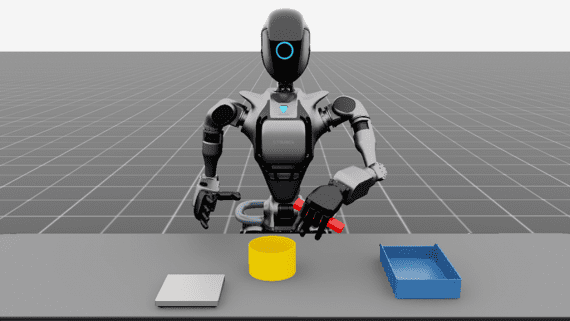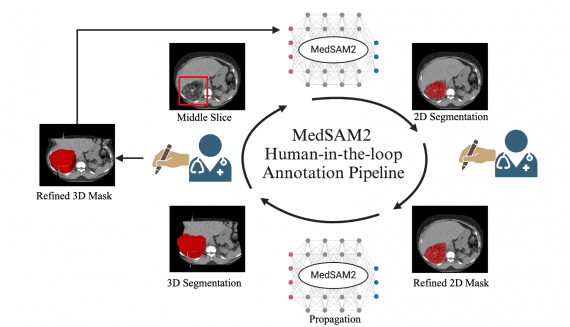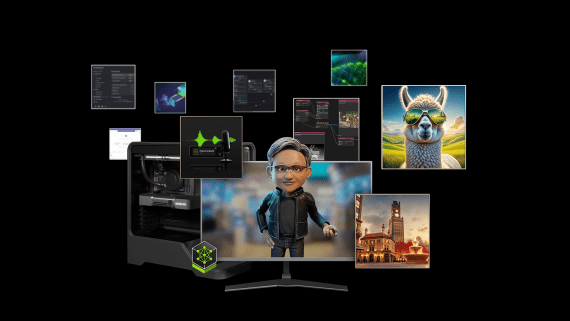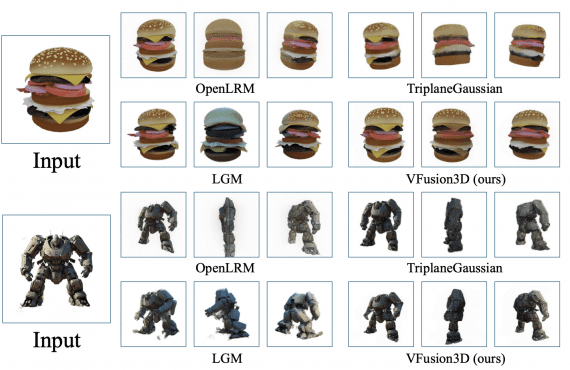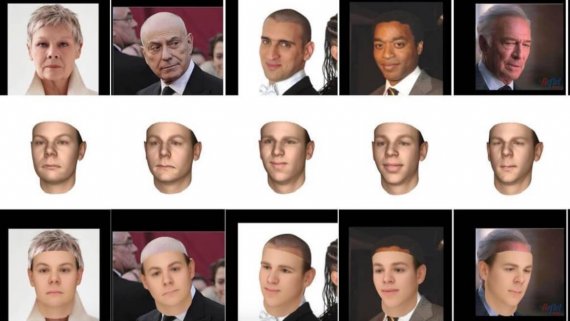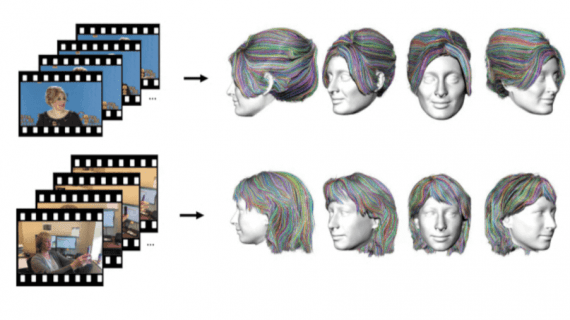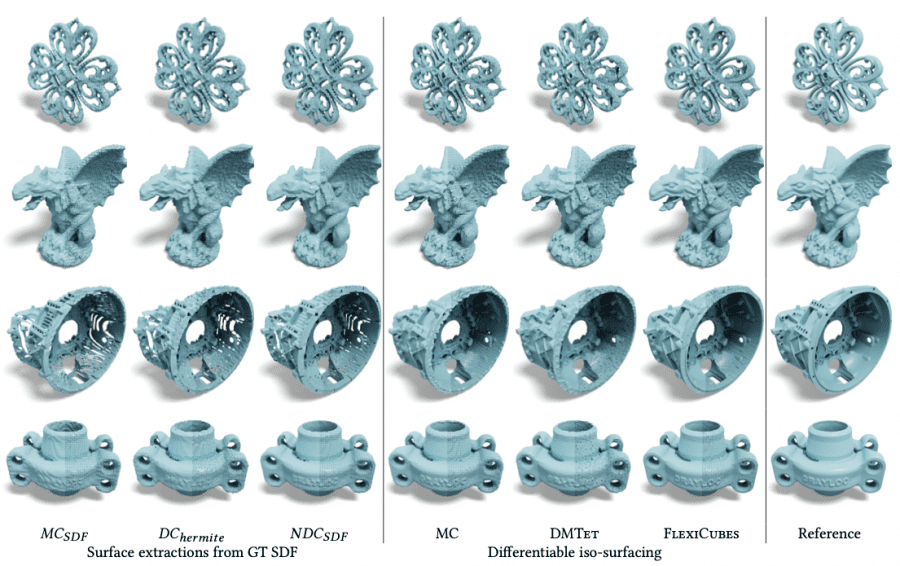
NVIDIA has introduced FlexiCubes – a method for generating 3D grids of objects through adaptive parameters. This innovation is designed to deliver the highest quality grids, catering to a wide array of applications, all while maintaining a strong emphasis on active control over the grid’s characteristics.
The latest generation of algorithms has witnessed remarkable success in fashioning realistic and intricately detailed 3D models across a diverse spectrum of tasks. From scene reconstructions to generating animated entities, these models are often structured as conventional triangular meshes. Such meshes boast several advantages, including compatibility with existing software packages, enhanced hardware acceleration, and support for physical simulations. However, mesh quality is of paramount importance in harnessing these benefits effectively.
The cornerstone concept behind Nvidia FlexiCubes revolves around incorporating adaptive parameters, allowing for precise customization of the generated grid. These parameters fall into three categories: interpolation weights for positioning the mesh’s dual vertices in space, splitting weights for managing quadrilateral subdivisions into triangles, and deformation vectors for spatial alignment.
By iteratively updating these parameters throughout the optimization process, the mesh quality experiences a significant elevation. This approach sets FlexiCubes apart from traditional mesh-based pipelines, with the most widely used being the Marching Cubes algorithm. FlexiCubes shines particularly bright in the realm of physical modeling, where mesh quality decisively influences the attainment of efficient and realistic outcomes.
FlexiCubes also extends the capability to generate tetrahedral grids, primed for utilization within existing modeling software suites. This feature expands the method’s applicability across various industrial sectors.
For more working examples of this algorithm, visit the project page.
